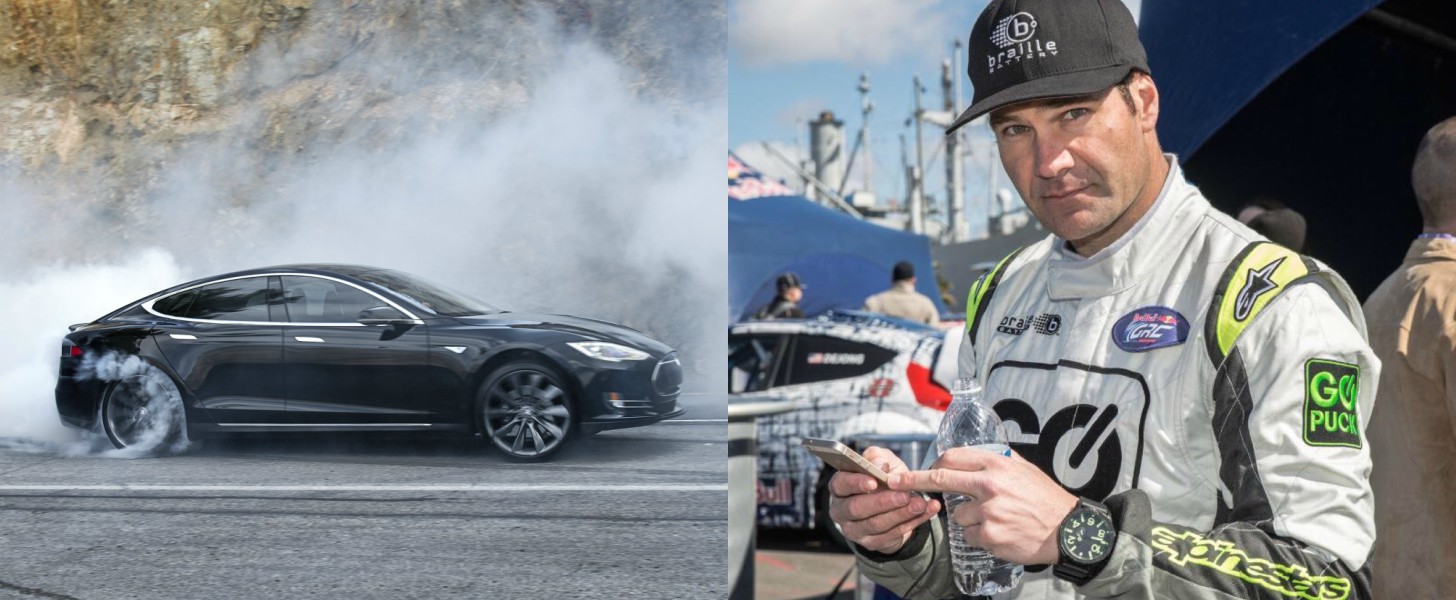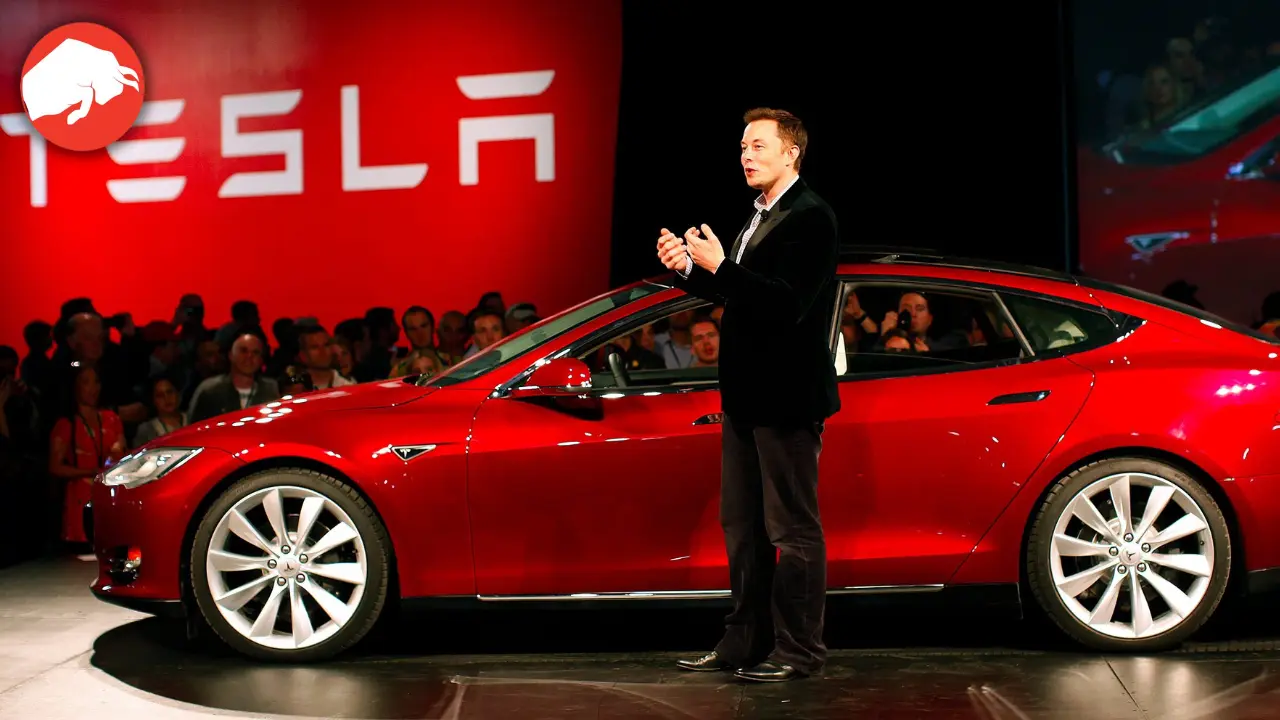Earlier this month, Tesla Inc. dispatched its high-end Model S Plaid on a blistering run at Germany’s notorious Nürburgring’s Nordschleife circuit, a challenging racecourse frequently utilized by automakers to evaluate their newest models and technological advancements. Guided by a seasoned professional driver, the Plaid, hailed by Tesla CEO Elon Musk as the fastest production car ever created, blazed through the winding 12.9-mile track in a remarkable 7 minutes and 35 seconds, setting an electric vehicle lap record.
The achievement was not only a personal triumph for Musk, who shared the results on Twitter, but also a significant marketing accomplishment for Tesla. The company has been engaged in a competitive race for electric speed supremacy against its rival, the Porsche Taycan, the previous record holder for electric vehicles at the Nürburgring. However, this performance was an uncommon official entry for Musk and Tesla, who typically highlight their technical advancements at controlled product events or through attention-grabbing YouTube videos. If Tesla’s cars are genuinely the top choice in their class, why doesn’t Musk demonstrate it in Formula E, the all-electric counterpart of Formula One, or other motorsport leagues?
Tesla Model S Plaid just set official world speed record for a production electric car at Nurburgring. Completely unmodified, directly from factory. pic.twitter.com/AaiFtfW5Ht
— Elon Musk (@elonmusk) September 9, 2021
Tesla and Racing: Why Elon Musk Avoids Corporate-Tied Motorsports and What Blake Fuller Thinks About It
Musk is frequently confronted with that inquiry on various online platforms. Traditional automotive brands, such as Chevrolet and Ferrari, have historically enjoyed the positive impact of their involvement in racing, known as the halo effect. Hence, as one Twitter user inquired last year, was there a possibility of Tesla establishing an official racing team? Musk promptly replied, stating, “No, we are focused on developing new products & scaling production.” This suggests that investing in an electric vehicle racing program would not directly contribute to the enhancement of passenger cars or manufacturing advancements. Audi AG and BMW AG have cited the absence of technology transfer as a reason for their departure from Formula E, reinforcing this perspective.
No, we’re focused on developing new products & scaling production
— Elon Musk (@elonmusk) August 26, 2020
According to Blake Fuller, an independent battery developer and professional driver who races Teslas, Musk’s reasoning is probably more nuanced. Despite lacking any official support or sponsorship from Tesla, Fuller has successfully participated in races, such as zooming up Colorado’s Pikes Peak in a Model 3 and competing against Ford, Nissan, and Subaru vehicles in the renowned century-old hill climb at Mount Washington in New Hampshire just last month.
Although Fuller expresses his desire for Musk to venture into racing, he recognizes the numerous risks involved in engaging in “corporate-tied” motorsports, particularly for a company like Tesla that is under intense public scrutiny. If a Tesla were to crash during a high-profile competition, resulting in driver injury or battery ignition, it could potentially raise doubts about Tesla’s safety credentials. Fuller emphasizes that the most significant concerns revolve around the potential “what if” scenarios.

Another factor is that the company already enjoys a constant stream of unpaid publicity from devoted Tesla enthusiasts, eliminating the risks associated with corporate sponsorship. Fuller himself serves as a prime illustration of this phenomenon, but social media is teeming with videos of Tesla enthusiasts engaging in drag races against high-end cars like Lamborghinis, garnering millions of views without any marketing expenditure. Consequently, Fuller suggests that Tesla probably doesn’t require “as much marketing assistance in introducing their EVs” since their reputation for speed and superiority is already well-established.
From that perspective, it becomes evident that one of the primary reasons Elon Musk avoids entering Formula E or engaging in formal head-to-head races against competitors like Porsche is his reluctance to potentially face defeat. Tesla is already synonymous with speed, while other emerging electric vehicle manufacturers must demonstrate their technical prowess. By refraining from such competitions, Musk avoids granting Porsche or rivals like Lucid Motors, which supplies batteries to Formula E, an opportunity to challenge Tesla’s reputation. Instead, Tesla derives more mileage from carefully orchestrated in-house competitions, such as the infamous tug-of-war between the new Cybertruck and Ford’s F-150, which sparked controversy and was deemed misleading by a Ford executive.

However, Fuller argues that official racing could provide Tesla with more substantial grounds for boasting, and he strongly disagrees with the notion that professional competitions would not enhance their technological performance. He specifically points out concerns regarding braking and steering that, in his opinion, need improvement to match the standards set by Porsche and other competitors. Fuller humorously remarks, “Elon can reach out, and we can make Track Mode better ’cause there are things that suck about it,” referring to Tesla’s racetrack setting. He emphasizes that these issues are solvable and believes that improvements can be made.










